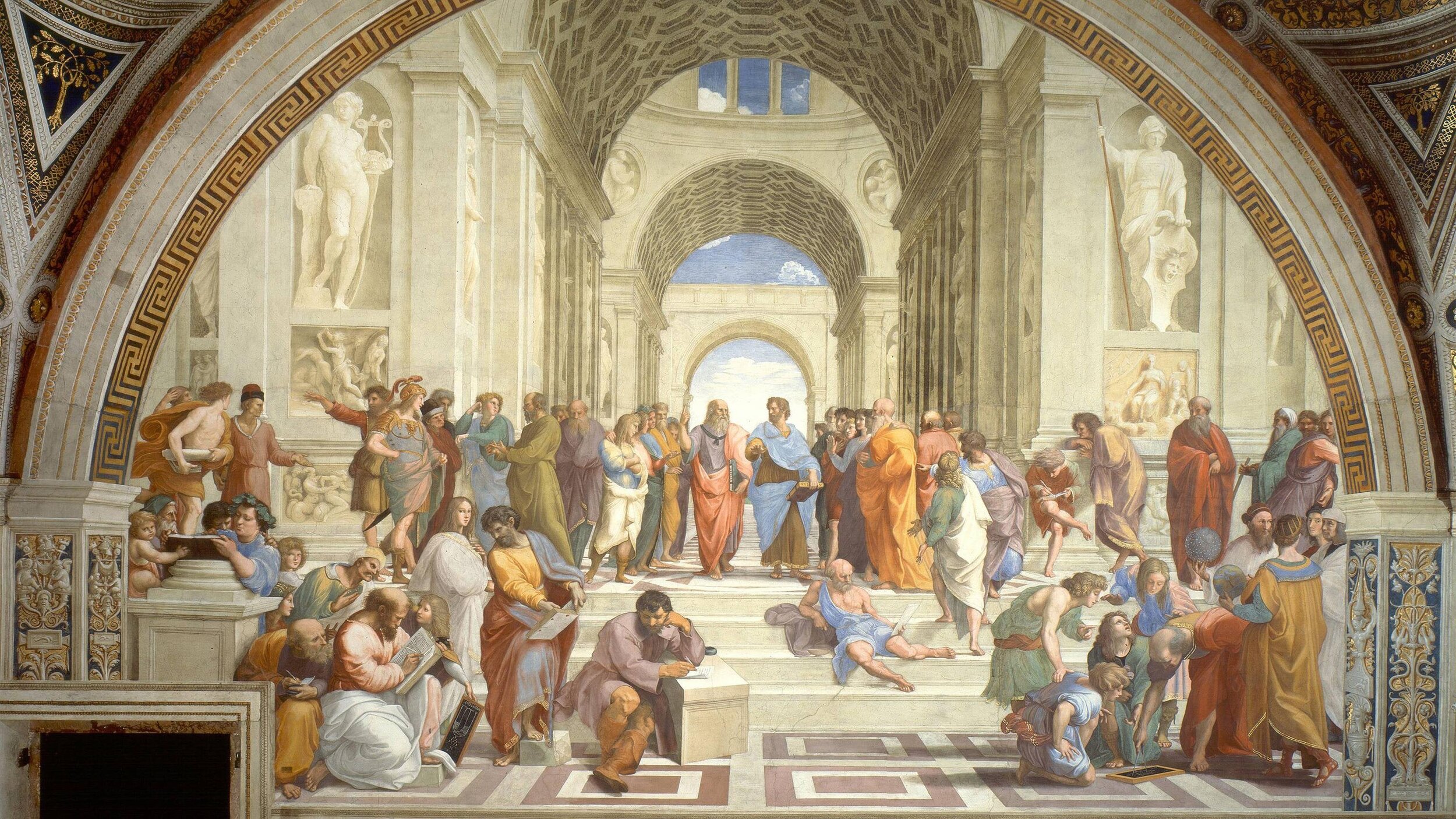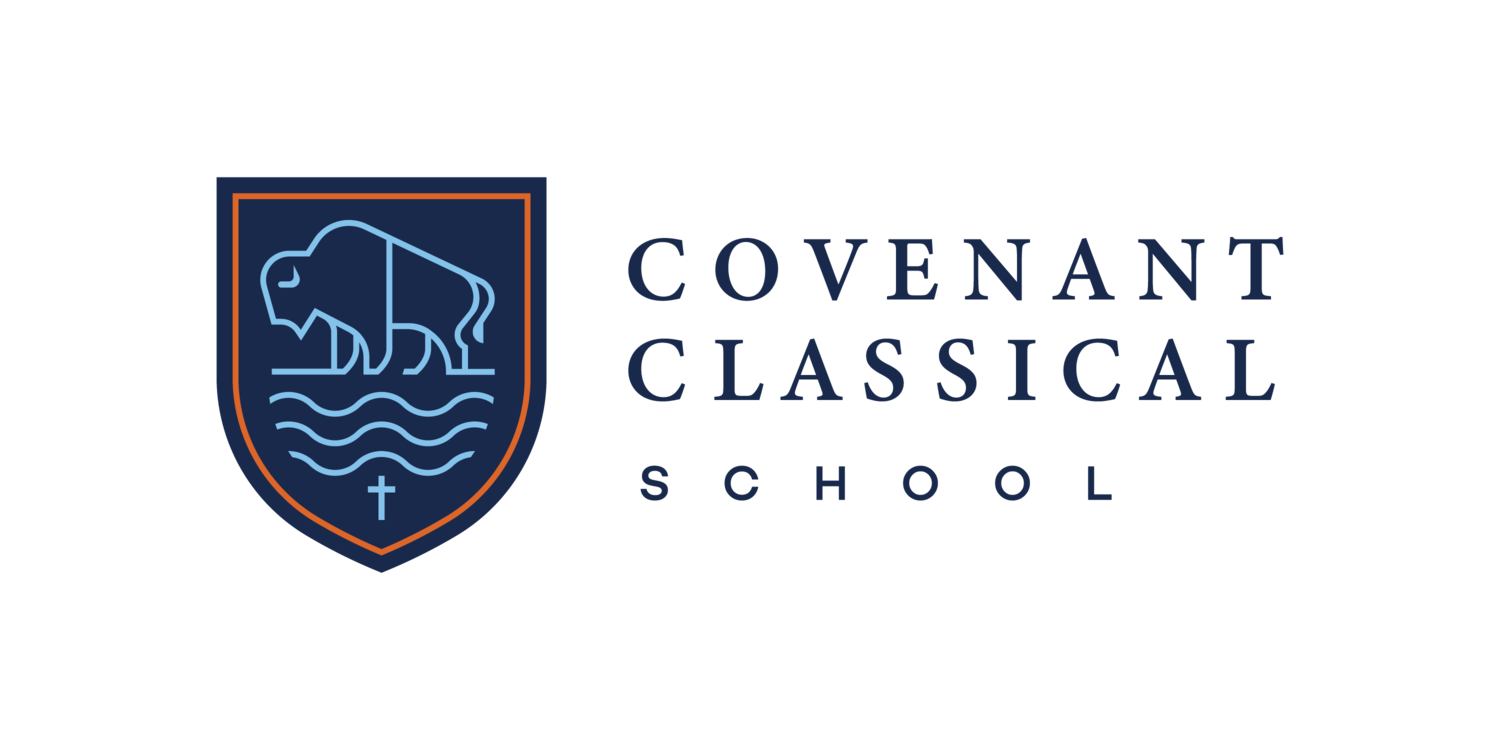
Thoroughly Classical
The Aim.
Classical education seeks the cultivation of virtue in students. It places a high value not just on information, but also on formation. Classical education looks at the whole person—both body and soul. It aims to liberate students so that they would become lifelong learners and leaders, putting to use the wisdom and knowledge they have acquired. And though human beings are fallen by nature, in Christ they can be redeemed from their sin and transformed to grow in virtue as they find out what it means to be happy and human.
The Content.
For education to be genuinely classical, the content of learning must take into consideration the history of Western thought—the high points and low points of what is considered the “great conversation”. It focuses on the great works of history, and it also requires you to become familiar with the greatest book, the Bible. Classical education does not encourage an inordinate infatuation with the past nor does it endorse or agree with all the great minds of history, but to be a classicist requires you to listen to the past and to learn from it. There must be a familiarity with where you came from and where you are going. For this reason, history serves as the organizing backbone for all other subjects. Not only that, but Christ Jesus is the focal point of world history. He is the turning point of the times. Biblically speaking, history unfolds in the great acts of creation, fall, redemption, and restoration. As you study history, you recognize that your story finds its place in the larger story that God has written.
One component to learning about the past entails that you also learn the languages of the past. The study of Latin (and Greek) is an important element of classical education as it primes students for future language acquisition as well as familiarizes students with the technical vocabularies of law, science, philosophy, medicine, and more. While considered a “dead” language by those who criticize its use in modern education, the study of Latin often makes the world alive to those who study it. Even beyond the study of Latin, classical education could be considered language-focused. Its learning is primarily word-driven, both written and spoken, rather than image-driven (pictures and videos). This makes learning an active rather than a passive exercise, as the brain has to work hard to translate symbols into concepts.
The Method.
Perhaps the most well-known aspect of classical schooling is its emphasis on the teaching method. We don’t just want to teach students what to think; we want to teach them how to think. Classical schooling adopts the tried-and-true educational model of the Middle Ages, the model rooted in the heritage of the Greeks and Romans—the Trivium. Until the late 19th Century, the Trivium was the model of education largely embraced by the English-speaking world and adopted and enhanced by the Christian church, where it came to full fruition.
Novelist and writer Dorothy Sayers, in her 1947 essay titled The Lost Tools of Learning, argued that a return to the Trivium was necessary for arming and equipping our children to adequately decipher and engage with the world around them. Utilizing the learning stages of grammar, logic, and rhetoric, Sayers argued that children will learn best when these stages are paired with the developmental phases of a child’s brain and character.
The Grammar Stage (Pre-Polly & Poll-parrot Age, K-6th Grade) is primarily concerned with the accumulation of knowledge. Each subject has its own grammar, or fundamental rules (not just English!). During the grammar stage, these fundamental rules will be memorized, absorbed, and stored for as many subjects as possible. Children’s minds work like a sponge during these years, becoming saturated with facts and knowledge. Recitation, chanting, singing, and catechesis are characteristic of this stage—you might call this the musical stage. These building blocks of knowledge lay a foundation to be built upon and organized in later years.
The Logic Stage (Pert Age, 7th-9th Grade) helps students see the ordered relationships between the building blocks of knowledge acquired in the grammar stage. The grammar of each subject is unintelligible unless students learn how the particulars of each subject relate to one another. This stage is primarily concerned with thinking and understanding. Students at this level are encouraged to ask questions, debate, and dispute (which they are more than willing to do at that age!) with the end goal of finding and closing on the truth. When students discover the limitations of cold logic and reason during the end of these years, they will realize the need for greater synthesis as truth, goodness, and beauty form an integrated whole with the Triune God at the center.
The Rhetoric Stage (Poetic Age, 10th-12th Grade) is concerned with helping students effectively express what they have learned. Students have largely settled on what they think and now are confronted with the challenge of presenting their thoughts with eloquence, persuasion, and clear-mindedness. Subjects that once may have seemed fragmented are now understood and communicated in light of the bigger picture—the parts are understood in light of the whole. This stage requires the cultivation of wisdom and is the capstone of the Trivium. The wisdom and skills acquired in the rhetoric stage prepare students for life.
If our school is effective in its pedagogy, not only will the tools of learning have been internalized and information retained, but students will also have developed a love for learning about the world God has made—a love for the process, the content, and the aim. This is part of what it means to be classically educated.

For more information regarding the classical tradition and our influences, check out the recommended books below:
Recovering the Lost Tools of Learning, by Douglas Wilson
The Seven Laws of Teaching, by John Milton Gregory
The Liberal Arts Tradition: A Philosophy of Classical Education, Clark and Jain
Norms & Nobility: A Treatise on Education, David V. Hicks
The Core: Teaching Your Child the Foundations of Classical Education, Leah Bortins
Repairing the Ruins, Douglas Wilson
Leisure: The Basis of Culture, Josef Pieper
For the Children’s Sake, Susan Shaeffer Macaulay
Classical Me, Classical Thee: Squander Not Thine Education, Rebekah Merkle
The Abolition of Man, C.S. Lewis

